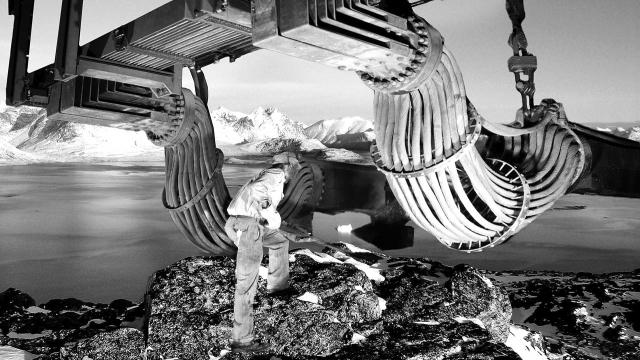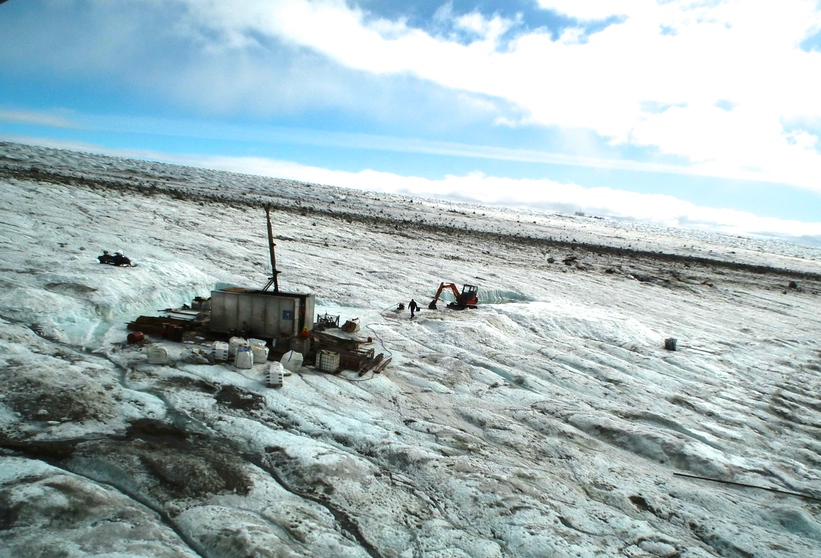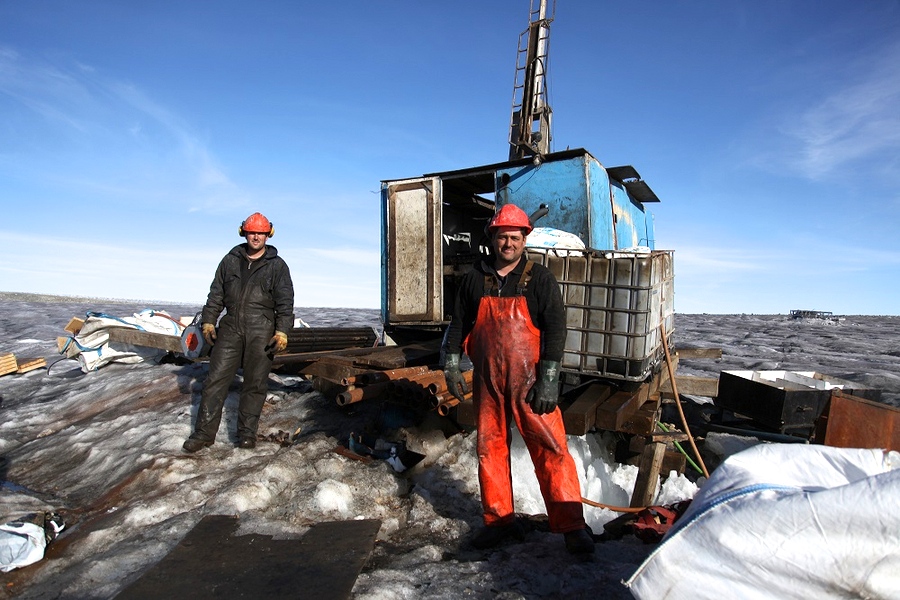
London Mining, a British mineral company, is trying to attract Chinese and other international investors to build a $2.46 billion iron ore mine just outside the Arctic Circle in Greenland.
The move comes as BP and Shell join others exploring for oil and gas in the pristine waters off Greenland, asconcerns grow that the wave of industrialization in the region will damage the pristine environment.
Greenland and the wider Arctic is seen as one of the new frontiers for exploiting mineral wealth, but uncertain national boundaries have also opened up potential political, if not military, conflicts.
London Mining, whose board includes a former British foreign minister in Sir Nicholas Bonsor, has already opened talks with Chinese mining group Sichuan Xinye and others about helping finance a new mine at Isua.
London Mining chief executive Graeme Hossie said the company was looking at "all options, including Danish, other Nordic, Chinese and other global investors." He said the competition for funding was challenging and it was hard to predict when it would be in place.
The project has received government approval and could result in an influx of more than 3,000 construction workers into the country, which has a population of 57,000, to build a port and pipeline to serve the mine.
At present there is no mining of any kind in Greenland, but the cash-strapped and semi-autonomous country is keen to break away from financial and political dependence on its historical owner, Denmark.
In October a new government in Nuuk led by prime minister Aleqa Hammond gave the go-ahead to the Isua scheme and another at Kvanefjeld, while lifting a decades-long ban on mining uranium and rare-earth minerals.
Parliament voted to end the ban by 15 votes to 14 amid concern about the environmental and social impact of large mining schemes – particularly those involving radioactive materials such as uranium.
Hossie said: "London Mining has carried out several years of comprehensive environmental studies, all showing that the project can be completed without damaging the environment."
However, a social impact report prepared by London Mining, which is backed by some of Britain's biggest pension schemes such as Standard Life and F&C Asset Management, accepted there would be some detrimental effects from its scheme:
"The key risks and negative impacts are on a more social and health level such as social conflicts, vulnerable groups, risk for accidents and access to natural areas during the construction phase. Furthermore, there will be a pressure on the development plans and public service."
Last March the government of Kuupik Kleist fell after an election campaign dominated by an acrimonious debate over whether industries such as mining and oil would damage the traditional Inuit trades of fishing and hunting.
In particular there was criticism that the Isua scheme could lead to thousands of Chinese arriving in Greenland with a wider agenda of controlling an area of vast potential mineral wealth to feed their own country's industrialization.
London Mining has been keen to dampen this speculation and the new government has insisted all staffing plans will be discussed with local trade unions.
The Kvanefjeld scheme has been proposed by Australian company Greenland Minerals and Energy to produce uranium for a new generation of nuclear power stations in China and elsewhere. It is also intends to mine rare-earth minerals used in hi-tech weaponry and mobile phones.
Meanwhile, oil firms including BP, Shell, Statoil and ConocoPhillips have been awarded licenses to operate in the region to join those previously given to ExxonMobil and Cairn Energy. Offshore drilling by Cairn in summer 2011 put it into physical contact with environmental campaigners from Greenpeace who want drilling to stop.
The 30 protesters from Greenpeace who were jailed in Russia and released before Christmas had been arrested for trying to disrupt similar operations in the Barents Sea.
But wider concerns surround the uncertain national boundaries with Canada and Russia, which are among the countries pressing territorial claims through a process handled under the UN convention on the law of the sea.
When Canada announced last month it intended to lay claim to the north pole – never before taken as national territory – the move caused alarm among the other Arctic states: Denmark, Russia, Norway and the U.S. Russian president Vladimir Putin quickly promised to increase Russia's military presence in the region in response to Canada's claim, which would extend its territory by half a million square miles. Canada itself and Norway also plan to increase defense spending in the far north.
The Arctic nations are increasingly looking to the north as a source of natural resources and shipping lanes. The U.S. Geological Survey has estimated the region has 30% of the world's undiscovered natural gas and 15% of the oil. In 2012 Lloyd's of London warned of the environmental dangers of more than £60bn of investment heading to the Arctic over the next decade.
To request an extension of their nautical borders countries must submit proposals to the UN commission on the limits of the continental shelf. Under international law the five countries with territories near the Arctic Circle are allotted 200 nautical miles from their northern coasts. Under the UN convention on the law of the sea, exclusive claims can be vastly expanded for Arctic nations that prove that their part of the continental shelf extends beyond that zone – as Canada intends to do with a claim to the Lomonosov Ridge, an undersea mountain range between Ellesmere Island, Canada's most northern land mass, and Russia's east Siberian coast. That would extend Canada's claim 200 nautical miles beyond the north pole.
3 WAYS TO SHOW YOUR SUPPORT
- Log in to post comments

















